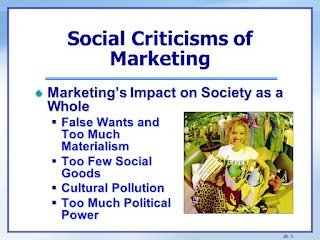Salespeople are sometimes accused of high-pressure selling that persuades people to buy goods they had no thought of buying. It is often said that cars, financial services, property, and home improvement plans are sold, not bought. Salespeople are trained to deliver smooth, canned talks to entice a purchase. They sell hard because commissions and sales contests promise big prizes to those who sell the most. Marketers know that buyers can often be talked into buying unwanted or unneeded things. A key question is whether industry self-regulatory or trading standards bodies, consumer-protection laws, and consumer-interest groups are sufficiently effective in checking and curbing unsavory sales practices. In this modem era, it is encouraging to note that one or more of these can work to the advantage of consumers. Or, where malpractices are pervasive, regulators will catch out wrongdoers, who will invariably pay the penalties for irresponsible marketing. This is evident in the ease of the mis-selling of pensions and life assurance policies in the UK market
Shoddy or Unsafe Products
Another criticism is that products lack the quality they should have. One complaint is that products are not made well. Such complaints have been lodged against products and services ranging from home appliances, cars, and clothing to home and car repair services. A second complaint is that some products deliver little benefit. In an attempt to persuade customers to buy their brand rather than any other, manufacturers sometimes make claims that are not fully substantiated. In the United Kingdom, for example, the Independent Television Commission (ITC) introduced new rules covering the advertising of medicines and treatments, health claims, and nutrition and dietary supplements, including slimming products. The move, which follows the publication of new advertising rules by the Advertising Standards Authority, brings the ITC in line with public and private sector opinion, and recent European Union legislation governing the advertising and sales of these products. Health claims for a food, for example, must now be fully substantiated. Creative ads must guard against encouraging overindulgence in products such as confectionery, so advertisers must pay attention to health implications.4 In markets where many brands are promising a wide array of product benefits, consumers are often left confused. In fact, consumers often end up paying more for product benefits that do not exist (see Marketing Highlight 2.2}. A third complaint concerns product safety. Product safety has been a problem for several reasons, including manufacturer indifference, increased production complexity, poorly trained labor, and poor quality control. Consider the following cases of costly and image-dam aging crises brought upon vehicle manufacturers.
Social Criticisms of Marketing: High-Pressure Selling: Chapter 7
Sort: Trending
